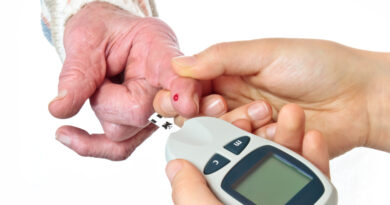Diabetes Management Tips for Optimal Insulin Sensitivity
Insulin sensitivity is a critical aspect of diabetes management. When you have type 2 diabetes, your body becomes resistant to insulin or doesn’t produce enough of it. This means that glucose can build up in your bloodstream and cause damage to various organs over time. However, by improving your insulin sensitivity, you can manage your diabetes more effectively and reduce the risk of complications. Here are some tips to help you achieve optimal insulin sensitivity:
Lifestyle Changes for Improved Insulin Sensitivity
One of the most significant ways to improve insulin sensitivity is through lifestyle changes. These include:
Exercise regularly: Physical activity helps to increase insulin sensitivity by reducing inflammation and improving muscle function. Aim for at least 30 minutes of moderate exercise per day.
Eat a healthy diet: A balanced diet that includes whole grains, fruits, vegetables, lean protein, and healthy fats can help to improve insulin sensitivity. Stay away from processed foods, sugary drinks, and high-glycemic index carbohydrates.
Maintain a healthy weight: Being overweight or obese can make it harder for your body to use insulin properly. Work with your doctor or a registered dietician to develop a plan to reach and maintain a healthy weight.
Medication and Supplements for Optimal Insulin Sensitivity
In addition to lifestyle changes, medications and supplements may also be necessary to improve insulin sensitivity. These include:
Metformin: This drug works by decreasing the amount of glucose produced by the liver and making cells more sensitive to insulin. It’s often the first line of treatment for type 2 diabetes.
Thiazolidinediones: These drugs work by increasing insulin sensitivity in muscles and fat tissue. They’re typically used as a second-line therapy.
Berberine: This herbal supplement has been shown to improve insulin sensitivity by activating AMPK, an enzyme that regulates energy metabolism.
Monitoring and Tracking Your Progress Towards Better Insulin Sensitivity
To ensure that your efforts to improve insulin sensitivity are working, it’s essential to monitor your progress regularly. You should check your blood sugar levels frequently and track any improvements over time. Additionally, you may want to consider wearing a continuous glucose monitor (CGM) which provides real-time feedback on your blood sugar levels throughout the day.
Conclusion: Taking Control of Your Diabetes with Proper Insulin Sensitivity Management
Improving insulin sensitivity is crucial for managing type 2 diabetes effectively. By making lifestyle changes, taking medication or supplements if needed, and monitoring your progress, you can take control of your diabetes and reduce the risk of complications. Remember, achieving optimal insulin sensitivity requires effort and dedication, but the benefits are well worth it.




